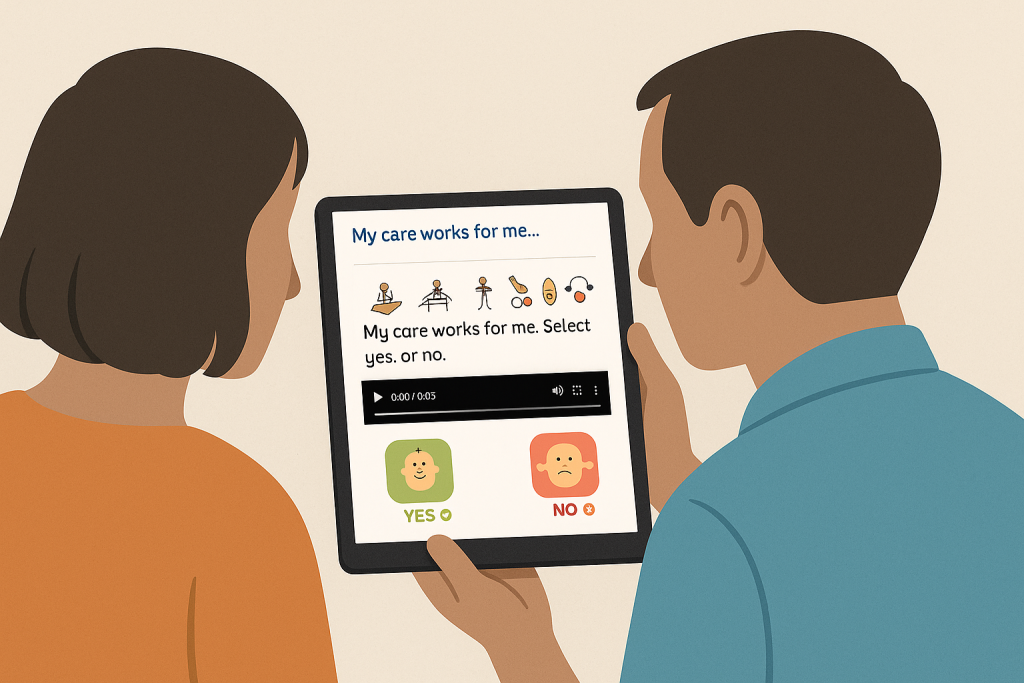How surveys and accessible feedback can help avoid the worst outcomes in care services.
In April, ITV News released a deeply troubling report exposing allegations of neglect and abuse at a care company supporting people with learning disabilities: 🔗 ‘It’s a life or death situation’: New allegations of neglect at care company
The investigation highlights serious failure – missed red flags, ignored concerns, and a lack of oversight that left vulnerable people at risk. For anyone working in or alongside the care sector, it’s a painful reminder of what can happen when voices go unheard. It’s also a call to action.
Feedback isn’t just a CQC box-tick. It’s how we safeguard lives
The Care Quality Commission (CQC) rightly asks services to gather feedback from the people they support, families, staff, and professionals. But feedback isn’t just a regulatory requirement – it’s a safety net. When done well, feedback can:
- Uncover early warning signs
- Show where support is slipping
- Spot patterns that need attention
- Highlight what’s working and worth sharing
In the case exposed by ITV, it’s impossible not to wonder: could more structured, accessible feedback have helped raise the alarm sooner?
Listening must be inclusive – especially for people with learning disabilities
One of the greatest failures in this case was a lack of voice. Families told ITV they felt unheard. Individuals were described as “invisible” in their own care. At Care Research, we believe feedback should be for everyone—and that includes people who don’t use traditional communication. That’s why we offer:
- Accessible survey formats
- Easy-read options
- Pictorial and visual formats using PECS or Makaton
Because people with learning disabilities deserve to be active participants in their care – not passive recipients.
Quality improvement starts with listening
Beyond compliance, feedback gives care services the insights they need to improve. We’ve seen clients use their survey findings to:
- Rebuild trust with families
- Change cultures around ensuring every voice is heard
- Train staff in specific areas identified by residents
- Celebrate what’s going well and share good practice
It’s not just about avoiding bad headlines – it’s about doing better, every day.
Let’s turn headlines into change
If your service supports people with learning disabilities, now’s the time to ask:
- Are we hearing from everyone we support?
- Is feedback safe, accessible, and acted upon?
- Could a better system for feedback protect the people in our care?
We’re here to help – we support you by managing the full process and ensuring your time is protected for what is most important; delivering exceptional care.
👉 Contact us to talk about accessible surveys and how we can help you turn feedback into action.
Let’s make sure these stories aren’t repeated. Listening should be a foundation, not an afterthought.
